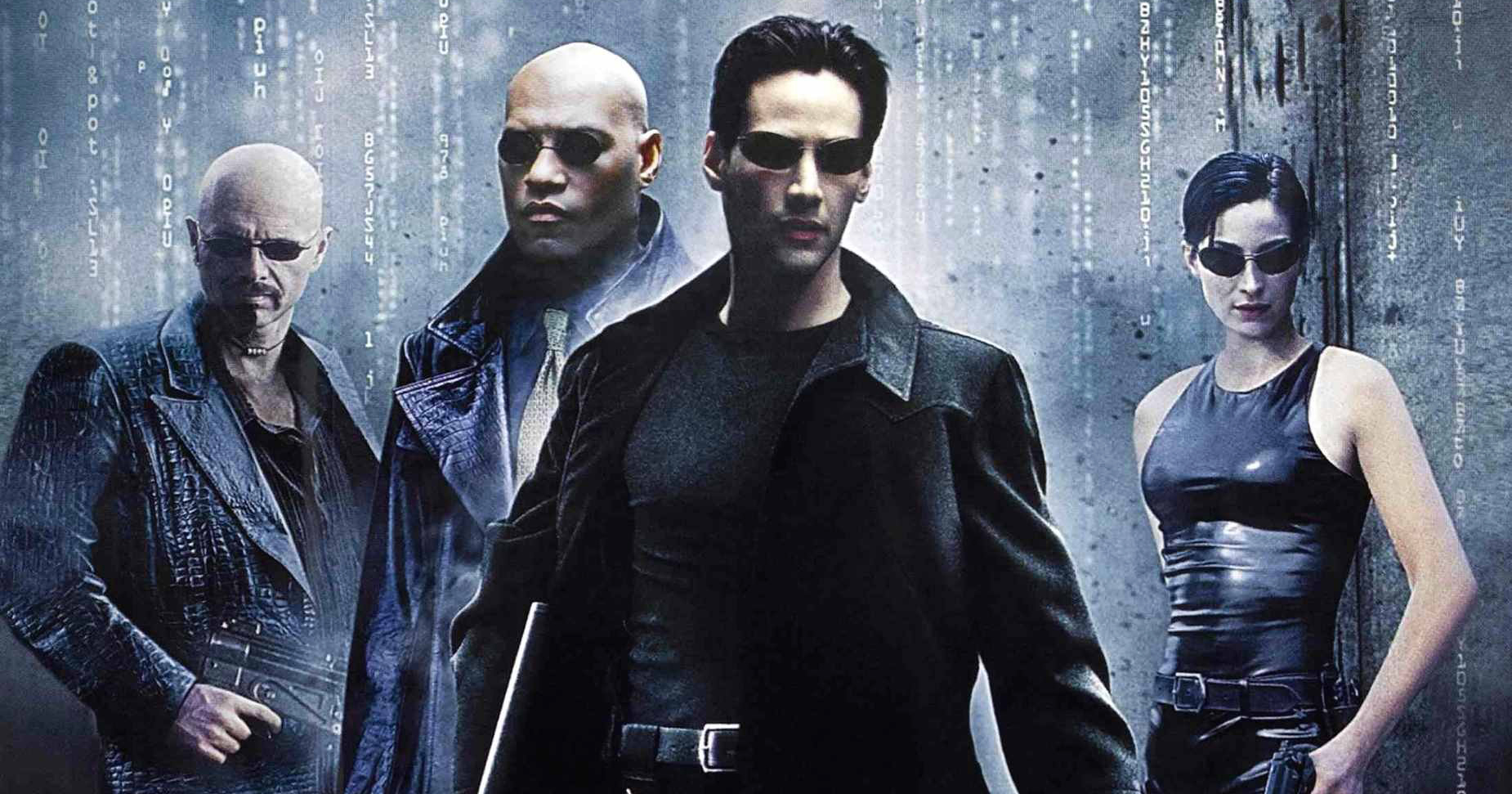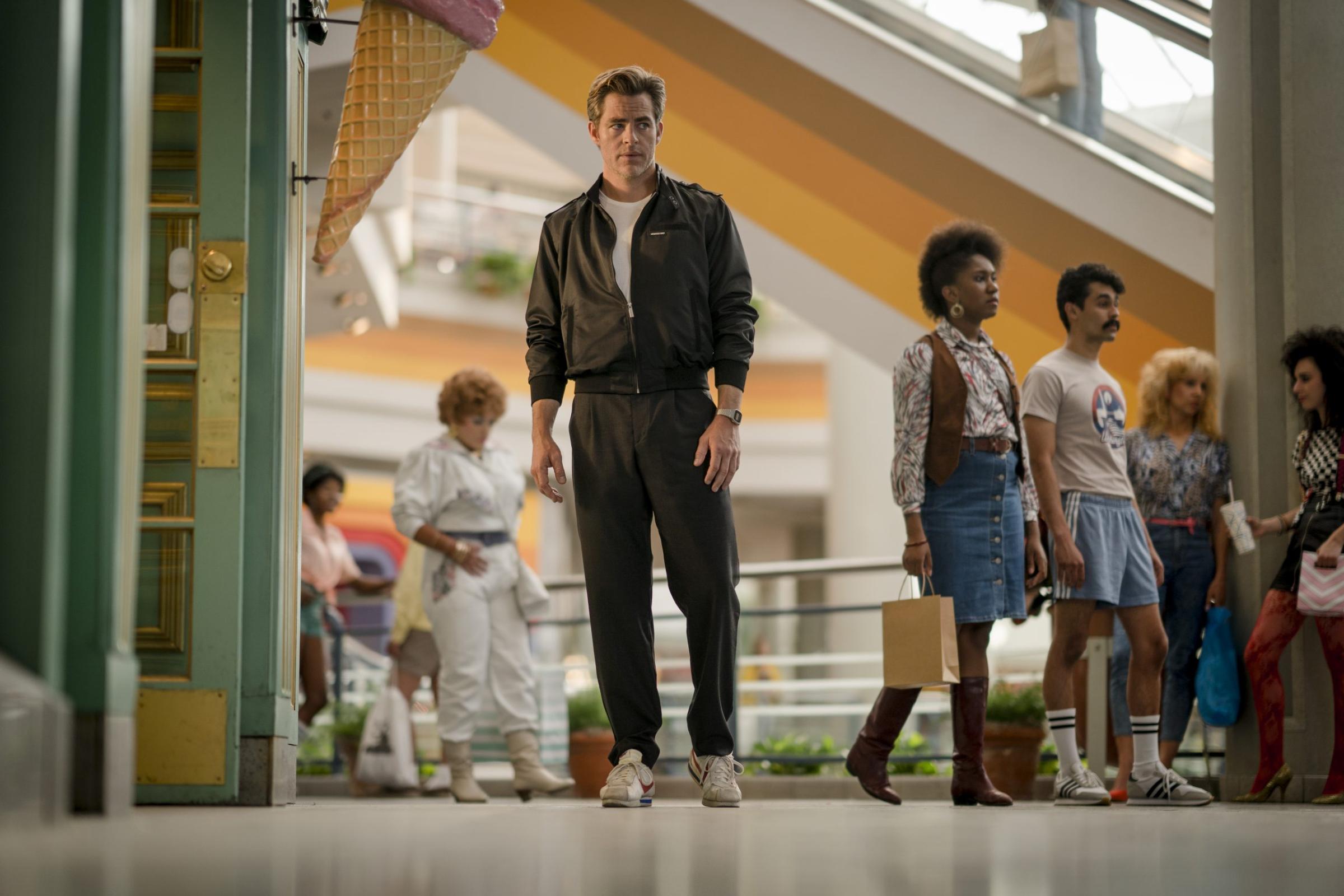
Warner Media and HBO Max might have just rung the death knell of the moviegoing experience. Warner Bros. announced on Thursday that it plans to release all 17 of its films planned for 2021 on HBO Max and in theaters simultaneously, including major would-be blockbusters like Matrix 4, In the Heights and The Suicide Squad. Warner Bros. had previously said it would release this year’s Wonder Woman 1984, arguably their most anticipated movie of 2020, simultaneously on streaming and in theaters on Dec. 25.
Movie theater stocks plummeted following the announcement, and with good reason. Motivating people to venture out to the cinema, even once there is a vaccine next year, will become a much harder sell when they can stream the same content from their couches. Though Warner Media has said the simultaneous release experiment, a response to the COVID-19 pandemic, will last just one year, cinephiles worry that if audiences get used to seeing expensive, top-tier movies at home, they may give up on the cinematic experience entirely. Major theater chain AMC is aggressively pushing back against Warner Bros.’ plan.
Here’s everything you need to know about how this decision could impact the future of movies.
Here’s how it will work

In the new system, Warner Bros. will release a movie—say, Dune—in theaters and on HBO Max at the same time, forgoing the traditional 74-day theatrical window (the time before a theatrically released movie can release on VOD). HBO Max subscribers will be able to access the movie for one month while non-subscribers will have to trek to the theater to see it. Then the movie will disappear from HBO Max for a time agreed-upon by Warner Bros. and the movie theaters showing the film.
For moviegoers, the choice is simple: either find a babysitter, leave the house, travel to the theater, pay for parking, pay for tickets, and pay for snacks—or just watch that same movie from your couch. There will always be those who cherish the communal experience of the darkened theater. But they may become outnumbered by those choosing the less strenuous and less expensive option.
Read More: Which HBO Max Original to Watch and Which to Skip
Here are the movies that will drop on HBO Max and in theaters at the same time

Warner Bros. has plenty of franchise fare that will now head straight to HBO Max, including Wonder Woman 1984 this December, then The Suicide Squad, The Matrix 4, Godzilla vs. Kong, Mortal Kombat, The Conjuring: The Devil Made Me Do It and the first Dune movie next year. These are all movies that were filmed with the big screen (or even IMAX) experience in mind.
Other offerings will include the sorts of movie stars that rarely make appearances on TV or VOD films, like Will Smith, Denzel Washington and Angelina Jolie.
That prestige-y lineup includes an adaptation of Lin Manuel Miranda’s In the Heights musical, Lebron James’ Space Jam sequel, a biopic of Venus and Serena Williams’ father Richard Williams starring Will Smith, the Angelina Jolie movie Those Who Wish Me Dead, a thriller called The Little Things starring Denzel Washington, a Daniel Kaluuya-Lakeith Stanfield awards hopeful called Judas and the Black Messiah, a Hugh Jackman movie from Westworld creator Lisa Joy called Reminiscence, the Sopranos prequel The Many Saints of Newark and a Clint Eastwood film titled Cry Macho.
What this means for the future of movies

For a long time there has been a divide between the movies released directly to VOD and those released in movie theaters. Fairly or not, studio executives, critics and even audiences granted a certain cache to a movie like Avengers: Endgame because it was a buzzy theatrical debut. However successful a Netflix superhero movie like The Old Guard might be, it never achieved the same stature as a Marvel Cinematic Universe movie. At the very least, theatrically released movies often got bigger budgets and bigger stars.
That divide between streaming and theatrical has been collapsing in recent years. Game of Thrones set a new bar for cinematic television. Now, an episode of The Mandalorian looks nearly as good as The Rise of Skywalker (though practically speaking, The Rise of Skywalker reportedly cost more than double what the first season of the Mandalorian did). COVID-19 has only accelerated that process. In early August, Disney moved Mulan‘s Labor Day release to Disney+ (for a premium price), and later followed suit with Pixar’s Soul. A few weeks later, Warner Bros.’ Tenet, long hailed as the savior of the 2020 moviegoing experience (and from the foremost champion of the theatrical experience, no less), faltered at the box office, and more studios began to drop properties on streaming rather than release the films in theaters where few people would pay to see them during the pandemic.
Oscar hopeful’s like Aaron Sorkin’s Trial of the Chicago 7 cut deals with Netflix in order to get their movies in front of audiences. Universal Studios struck a deal with movie theaters to narrow the theatrical window from as much as three months to as little as 17 days. It’s difficult not to see many of these decisions, including Warner Media’s decision to release its movies straight to VOD in 2021, as a reaction to the disappointing Tenet numbers.
It’s hard to imagine cinematic experiences like Tenet or The Dark Knight succeeding in this model. Christopher Nolan’s movies—and the generation of superhero movies that mimic his style—thrive on the overwhelming power of IMAX visuals, loud sounds and audience reactions. Indeed, it’s difficult to imagine a movie like Dark Knight or even a more recent superhero flick like Avengers: Endgame becoming the phenomena they were if people tuned in haphazardly at home, checking their emails during crucial scenes explaining the plot’s setup. A theatrical release not only forces people to pay attention to a movie all at once, but allows those audience members to experience the twists and turns and tension together. Those films lose much of their power when watched on a phone in bed.
Many media journalists have speculated that Netflix’s algorithm for choosing movies was built specifically with a distractible home audience in mind. It’s possible that directors who have resisted VOD content will have to do the same—or that studios will simply prioritize and fund movies that fit better with home viewing. Netflix’s massive success has allowed it diversify its films and pursue Oscar gold: and they now spend significant sums on prestige fare like The Irishman hoping that those movies will win awards and raise their profile. Studios may be reluctant to do the same without the promise of big box office payouts, at least while they’re still playing catch-up with Netflix in the race to gain customers.
Still, for those who want to see more than just big tentpole films, a pivot to a streaming-first strategy could be good news. In recent years, adult dramas (think: The Pelican Brief), rom-coms (which haven’t hit in theaters since Bridesmaids) and other mid-budget films have largely disappeared from theaters. Instead, studios funnel their resources overwhelmingly toward massive tentpole movies or low-budget horror films. As movie theater attendance has waned, studios have relied increasingly heavily on superhero movies to bring people to theaters, at the expense of other genres. A streaming-first strategy might encourage studios to diversify.
Read More: Here’s What We Learned From the Summer Movie Season That Never Was
What this means for moviegoers

Seeing new movies is going to be more convenient than ever. Simply open the app and click.
There are some caveats. Only American audiences will get access to movies on streaming immediately. It’s unclear if or when the service will be available elsewhere. Plus, right now, HBO Max is not available on Roku, one of the most popular devices for streaming. But the two companies are reportedly nearing a deal that would allow Roku users to watch Wonder Woman 1984 and other movies.
And with convenience will come costs: in the most literal sense, people will have to subscribe to more streaming services in order to keep up with all the latest movies. Say you pay for a Netflix account, Apple TV+ account, Amazon Prime account, HBO Max Account and Disney+ account to keep up with all the latest movies—you’re already spending about $50 a month on content. That’s already a hefty sum, but probably still a solid deal for people who watch plenty of the offerings on those channels and spend equally as much going to the movie theater per month. But there’s no guarantee that prices will remain this low, especially if movie theater chains begin to close and audiences have no other option but to watch a movie on streaming.
The collective theatergoing experience is also vital to movies—that moment when someone jumps out of the shadows and the audience screams; when the protagonist cracks a joke and infectious laughter overtakes the crowd; when a final confrontation between good and evil earns cheers from the crowd. There’s an energy to those moments that’s impossible to replicate at home.
What this means for the future of movie theaters

For Warner Media’s plan to work, movie theater chains will have to agree to play Warner Bros. movies in theaters while those films simultaneously stream on HBO Max. That looks unlikely to happen—at least without a fight. Late on Thursday, Adam Aron, the CEO of AMC, came out with a strong statement opposing the plan. Aron noted that AMC had agreed to play Wonder Woman 1984 in theaters on the same day it hit streaming because of the extraordinary circumstances of the pandemic. “Warner now hopes to do this for all their 2021 theatrical movies, despite the likelihood that with vaccines right around the corner the theatre business is expected to recover,” Aron told Variety.
“Clearly, Warner Media intends to sacrifice a considerable portion of the profitability of its movie studio division, and that of its production partners and filmmakers, to subsidize its HBO Max start up,” he added. “As for AMC, we will do all in our power to ensure that Warner does not do so at our expense. We will aggressively pursue economic terms that preserve our business. We have already commenced an immediate and urgent dialogue with the leadership of Warner on this subject.”
AMC is the largest theater chain in the U.S. Cinemark—which owns Regal, the second largest chain in the country—said it did not yet have enough information to make any decisions. “We are making near-term booking decisions on a film-by-film basis,” the company said in a statement. “At this time, Warner Bros. has not provided any details for the hybrid distribution model of their 2021 films.”
It’s unclear how much leverage movie theaters will have against major studios. Studios and theaters have long agreed on theatrical windows, the time a movie plays in a theater before it’s released to home video, DVD or, now, streaming. In the past, those windows served everybody: studios made more money from movie ticket sales than they did from, say, VHS sales. But during the pandemic, few movie theaters are even open, and those that are remain largely empty. Many studios have cut their losses by releasing movies straight to VOD, and it’s unclear how much money studios are making from VOD streams and how those profits compare to a theatrical release (more on that later).
AMC, Regal and other major movie theaters chains are left in a bind. Fewer people are going to go to theaters if the movies available at theaters are also available at home. Higher-quality piracy ripped from streaming releases will be another thorn in their side. But theaters can’t easily boycott a movie like Wonder Woman 1984, potentially their biggest draw of the year.
Read More: Dune, No Time to Die and Black Widow Are All Delayed. What Does That Mean for the Future of Movies?
What this means for the streaming services

It’s easy to determine whether a movie released in theaters is a hit or a bomb based on its box office—the original Wonder Woman movie grossed $821.8 million, and there’s every reason to believe the sequel would perform just as well or better in a normal year. But the details of how movies fare on streaming services are more hazy. HBO Max, Netflix, Disney+ and others largely self-report those numbers, and they don’t necessarily differentiate between the viewer who watched a few minutes of a movie before switching to something else from the person who actually watched the movie.
Subscriber numbers also seem to ebb and flow depending on what’s available on a service. Disney+ subscriptions reportedly dropped after the first season of The Mandalorian wrapped last year. If HBO Max premieres Wonder Woman 1984 on their service, it’s possible that millions of new people will sign up for HBO Max just to see that movie and then cancel their subscription by the end of the month only to re-up again when another major release piques their interest.
Still, this strategy will give HBO Max an upper hand in the streaming wars, which they are currently losing: HBO Max reported it has 57 million subscribers in October, compared to Disney’s 73 million and Netflix’s 195.2 million. Other studios with streaming services, like Paramount (which owns CBS All Access) will be pressured to beef up their streaming offerings. Those studios without an obvious streaming outlet like Sony will want to cut deals with streaming services. Whether Warner Bros. can overtake these other services in the next year will probably determine the future of the movie business.
More Must-Reads from TIME
- How Donald Trump Won
- The Best Inventions of 2024
- Why Sleep Is the Key to Living Longer
- Robert Zemeckis Just Wants to Move You
- How to Break 8 Toxic Communication Habits
- Nicola Coughlan Bet on Herself—And Won
- Why Vinegar Is So Good for You
- Meet TIME's Newest Class of Next Generation Leaders
Write to Eliana Dockterman at eliana.dockterman@time.com